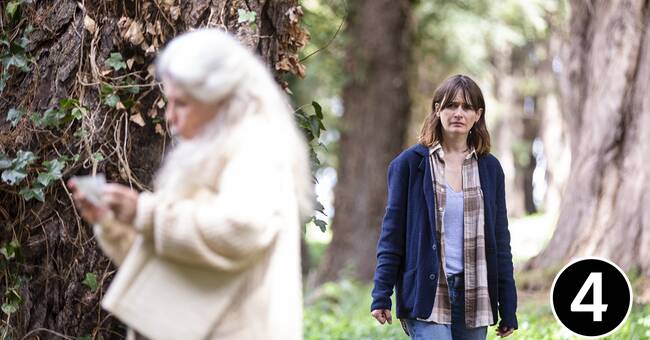Another haunted
house, one could sigh, with good reason.
But still not.
Because even though the playing field is dilapidated by decades of struggle between man and demon, Relic finds new dark corners to drill into.
The mentioned house is located in the country and once housed an entire family, but now only the demented old lady Edna lives.
When her daughter Kay and granddaughter Sam come to visit, Edna is gone, and once she shows up she is sore and dirty - and judging by all the strange noises in the old house, it seems that she did not come home alone.
It is an
impressive debut by Australian Natalie Erika James who, like compatriot Jennifer Kent (The Babadook), begins her feature film career with a unique horror film that allows inner events to materialize as threatening monsters.
Okay, this in itself is nothing new, most of all good horror does just that, but here it's not an alarming mental breakdown that gets a physical body but something as mundane as a dementia disease, which makes it all painfully intrusive, in all case if, like the undersigned, you have a close relative who is on his way into the deadly fog.
Natalie Erika James'
film works in the subgenre called "arthouse horror", ie a more toned-down, psychic horror, which has a moment of celebration right now (The Babadook, Hereditary and others).
Here, then, in a form of an allegorical horror about Alzheimer's where the disease is illustrated by black mold that grows on people and houses - it is at all very fleshy creation, whose whole being breathes organism: the subtitles that kind of creak, the camera's pulsating fades and fades , the expressionist soundtrack, the gnarled snarky nature and especially then the large wooden villa, whose interior with all the winding corridors and cluttered rooms, looks much larger and more complex than its malate exterior.
Leave logic and physical laws there, this is a literally mind-blowing trip.
Even the old
psychonaut Carl Jung's dream analysis established that the house was a symbol of the self, and even though dream interpretation today comes with a stamp of approval, it is still a popular trope in the horror film - and here it is the very foundation of the story.
Natalie Erika James and company weave together metaphorical events, dreams and (what we perceive as) cinematic reality with an ingenious seamlessness that puts brain and soul into stimulating work.
Natalie Erika James' script is inspired by her own experiences and maybe that's why the goofy final scene in some paradoxical way feels so fine-tuned;
as an act of acceptance and love for a parent with a fatal illness.
How often can you say that about the horror of a horror movie?

